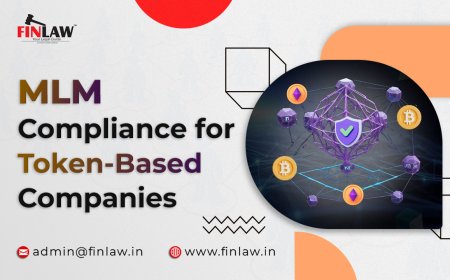Pyramid Schemes vs. Direct Selling: Understanding the Legal Distinction in India
Confused between Direct Selling and Pyramid Schemes in India? Learn the legal distinctions & red flags to avoid scams.

Direct selling, often intertwined with the term Multi-Level Marketing (MLM), has become a popular avenue for entrepreneurship in India. However, confusion often arises regarding its distinction from pyramid schemes, which are illegal in the country. Both models involve building networks to sell products, but the legal line is drawn on what drives the earning potential – product sales or recruitment. Understanding this crucial difference is vital for both aspiring salespeople and consumers in India.
The Lure of Easy Money: Pyramid Schemes Exposed
Pyramid schemes are deceptive business models that exploit the promise of quick wealth through recruitment, not genuine product sales. They typically lure individuals with hefty upfront fees or purchases of starter kits containing products with inflated prices. The real profit, however, comes from recruiting new members who are then pressured to repeat the cycle.
Key Legal Markers: Spotting the Red Flags
Several legal markers can help differentiate legitimate direct selling from illegal pyramid schemes. Here are some red flags to watch out for:
-
Excessive Upfront Costs: Pyramid schemes often have high upfront fees or mandatory purchases of expensive starter kits. Legitimate direct selling companies may have minimal or reasonable enrollment costs.
-
Focus on Recruitment: If the emphasis is solely on recruiting new members and building a downline, with little to no focus on product sales, it's likely a pyramid scheme.
-
Unsustainable Income Promises: Pyramid schemes often promise unrealistic levels of income, with most profits accruing to those at the top of the pyramid. Sustainable direct selling opportunities offer commissions based on actual sales efforts.
-
Product Quality and Usefulness: Pyramid schemes may offer low-quality or overpriced products with questionable usefulness. Legitimate direct selling companies focus on products that provide value to consumers.
-
Buyback Guarantees: Pyramid schemes may offer unrealistic buyback guarantees for unsold inventory, creating a financial burden for distributors. Direct selling companies may have buyback policies but with reasonable limitations.
Direct Selling: A Legitimate Business Model
Direct selling, on the other hand, is a legal and recognized form of business in India, governed by the Consumer Protection Act (CPA) 2019 and the Consumer Protection (Direct Selling) Rules, 2021. In this model, individuals, known as direct sellers or distributors, sell products directly to consumers, often through person-to-person interactions or demonstrations. They earn commissions based on the products they sell, with the potential to build a team and earn additional income from their team's sales.
Here are some key features that differentiate direct selling from pyramid schemes:
-
Focus on Product Sales: The primary emphasis is on selling quality products or services to end consumers.
-
Sustainable Earning Potential: Income is generated primarily through product sales, with commissions structured to incentivize selling, not just recruiting.
-
Reasonable Entry Fees: Direct selling companies typically have minimal or no upfront costs, focusing on providing training and support for product sales.
-
Optional Recruitment: While building a team can be beneficial, it's not mandatory to earn a commission.
The Legal Framework: Distinguishing Between the Two
The Consumer Protection (Direct Selling) Rules, 2021, play a crucial role in differentiating legitimate direct selling companies from pyramid schemes. Here's how the direct selling or Network Marketing law addresses the key differences:
-
Product Buyback Policy: Direct selling companies must have a buyback policy for unsold products, protecting distributors from financial burden.
-
Focus on Retail Sales: The rules emphasize selling products to end consumers, not just within the network.
-
Restriction on High Entry Fees: Unreasonable upfront costs are discouraged to prevent pyramid-like structures.
Empowering Consumers and Businesses
Understanding the legal distinction between direct selling and pyramid schemes empowers both consumers and businesses.
-
Consumers: By being aware of the red flags of pyramid schemes, consumers can avoid falling prey to deceptive practices and protect their finances.
-
Businesses: Direct selling companies can operate with clarity, focusing on building a sustainable business model based on genuine product sales and ethical practices.
The Road Ahead: A Thriving Direct Selling Industry
With clear legal regulations in place, the future of direct selling in India appears promising. As the industry grows, it's crucial for regulatory bodies, businesses, and consumers to work together to maintain a healthy ecosystem.
Consumers must remain vigilant and report suspicious schemes to authorities. Direct selling companies must prioritize product quality, ethical marketing practices, and distributor training. Finally, continuous improvement of legal frameworks can further address emerging challenges and ensure the industry's sustainable growth.
By bridging the knowledge gap between legitimate direct selling and illegal pyramid schemes, India can foster a thriving direct selling sector that empowers entrepreneurs and offers consumers a wider range of products and services through a well-regulated network.
What's Your Reaction?



















